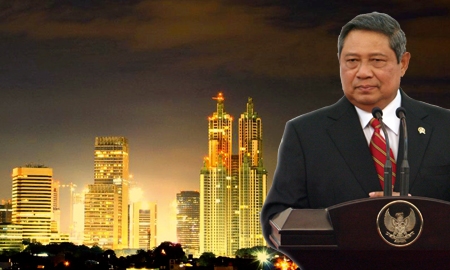Over the past 15 years, Indonesia has managed a spectacular turnaround. In terms of diplomacy, business and economics, this country of 240 million people – the fourth most populous nation in the world – has dramatically raised its international profile. A former home of President Obama, it shares similar multicultural traits as the U.S. across an archipelago of over 17,500 islands, more than 6,000 of which are inhabited and where no fewer than 300 local languages are spoken. Built on the principle of ‘Unity in Diversity,’ it draws strength from its harmonious ethnic mix and has earned the respect of world leaders.
Since recovering from the 1997-98 Asian financial crisis, it has achieved stable GDP growth of 5-6% per year and this year it is expected to be the world’s fastest growing economy. Fitch Ratings returned the country to investment-grade status in December 2011 for the first time since 1997, and Moody’s followed suit a month later, reflecting the increasing optimism for the country’s future.
After successfully guiding the country through the 2008-2009 global financial crisis, President Susilo Bambang Yudhoyono (who is also known as SBY) won a second term in the July 2009 elections, with the next round scheduled for 2014. In May 2011, he officially launched his administration’s ambitious Rp 4,000 ($437 billion) trillion national development roadmap covering 2011 to 2025.
“When discussing economic growth we must remember that it is directly related to investment,” says Kuntoro Mangkusubroto, Chairman of the President’s Unit for Development Control and Monitoring (UKP4). “We need $200 billion-worth of gross investment per year, coming from both foreign and domestic sources. This is a very high amount.”
Known as the Master Plan for the Acceleration and Expansion of Indonesian Economic Growth (MP3EI), the development initiative aims to attract greater foreign investment to boost economic growth nationwide and raise Indonesia’s gross domestic product (GDP) to around $4.5 trillion by 2025, which will place it among the world’s 10 largest economies.
At the launch ceremony, Suryo Bambang Sulisto, Chairman of the Indonesian Chamber of Commerce and Industry (KADIN), said the business community had committed to provide $150 billion in new investment for the MP3EI programs, adding: “This is the first time that the business community has been asked to be involved in the laying out of the mid and long-term economic development – sending a strong signal, especially for foreign investors, that the government is really serious and will go all out with this master plan.”
The MP3EI divides the country into six economic corridors, namely Java, Sumatra, Papua-Maluku, Kalimantan, Sulawesi, and Bali-Nusa Tenggara. The President said that projects falling under the new plan, some of which were already under way, include nationwide Internet broadband access, hydropower and solar power plants, a modern steel mill, a palm oil industry zone, access roads, toll roads, airports, dams, reservoirs, as well as nickel, cobalt and aluminum facilities.
In March 2012, the government announced it would launch 84 infrastructure projects worth Rp 536.3 trillion this year as part of the MP3EI. The statement detailed that 15 projects valued at Rp 66.2 trillion would be financed by the government, with another 20 projects worth Rp 90.3 billion to be backed by state-owned companies, and 38 projects totaling Rp 301.76 trillion to be funded by the private sector. Public-private partnerships (PPPs) are to develop the remaining 11 projects, worth Rp 78.2 trillion.
Internationally, Indonesia is becoming more prominent as a member of the G20 and chaired ASEAN in 2011 with various accomplishments to its credit. Indonesia’s Ambassador to the U.S. Dr. Dino Patti Djalal says, “We used to call ourselves a third-world country, but now due to our economic transformation, we consider ourselves an emerging economy. We are now the largest economy in Southeast Asia, with its largest middle class, and the third-highest growth in Asia. At a time when everybody has been downgraded, we have reached investment grade. We are very much in a good place now and Indonesia sees itself as a regional power with global interests. We hope that this will be the Asia-Pacific century, and Indonesia very much hopes to be part of the group of countries that moves, shakes, and shapes the Asia-Pacific region in the 21st century.”

1 COMMENT
Indonesia is a friendly country, hardworking people ,with future prosperity. Bravo Indonesia,bravo...